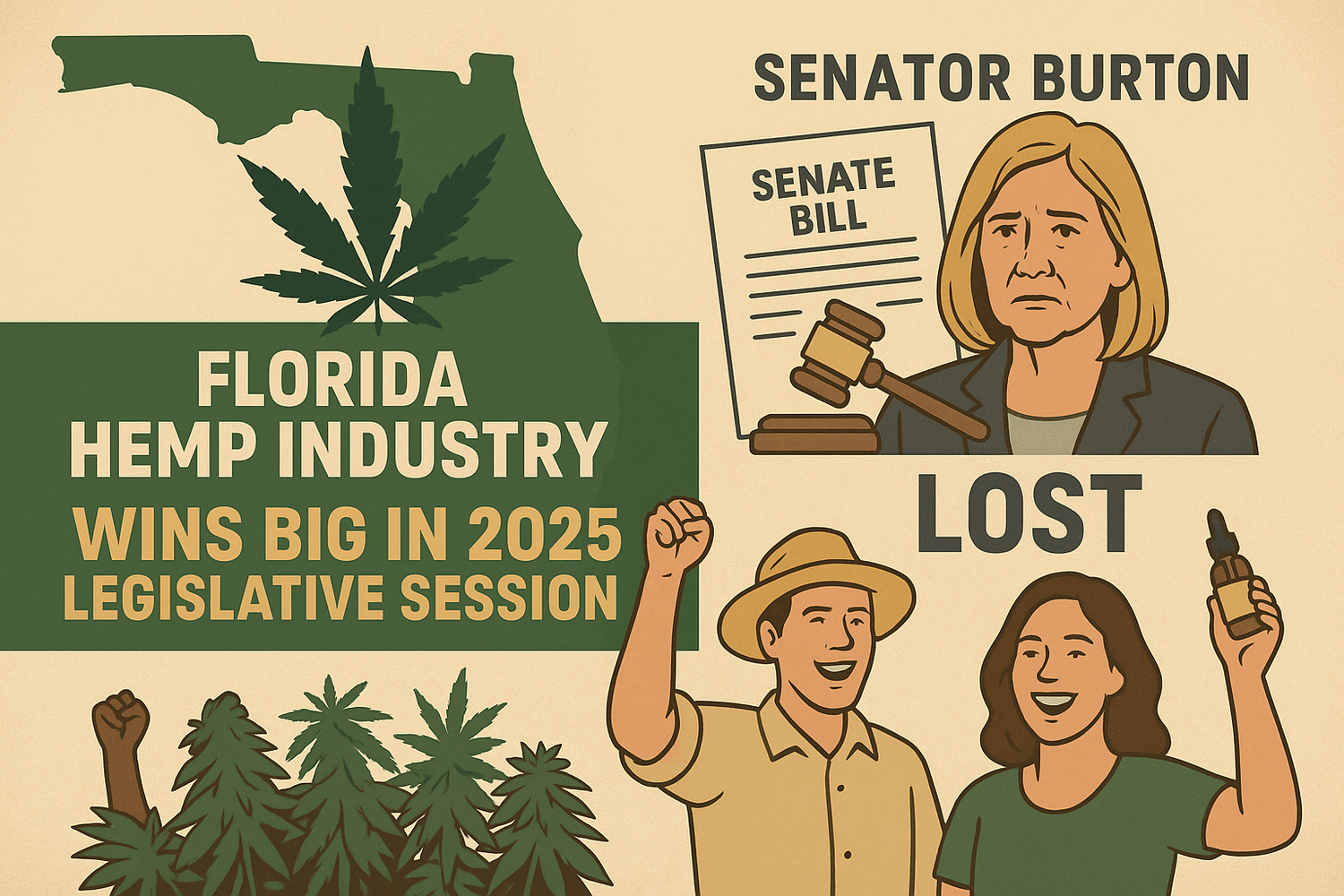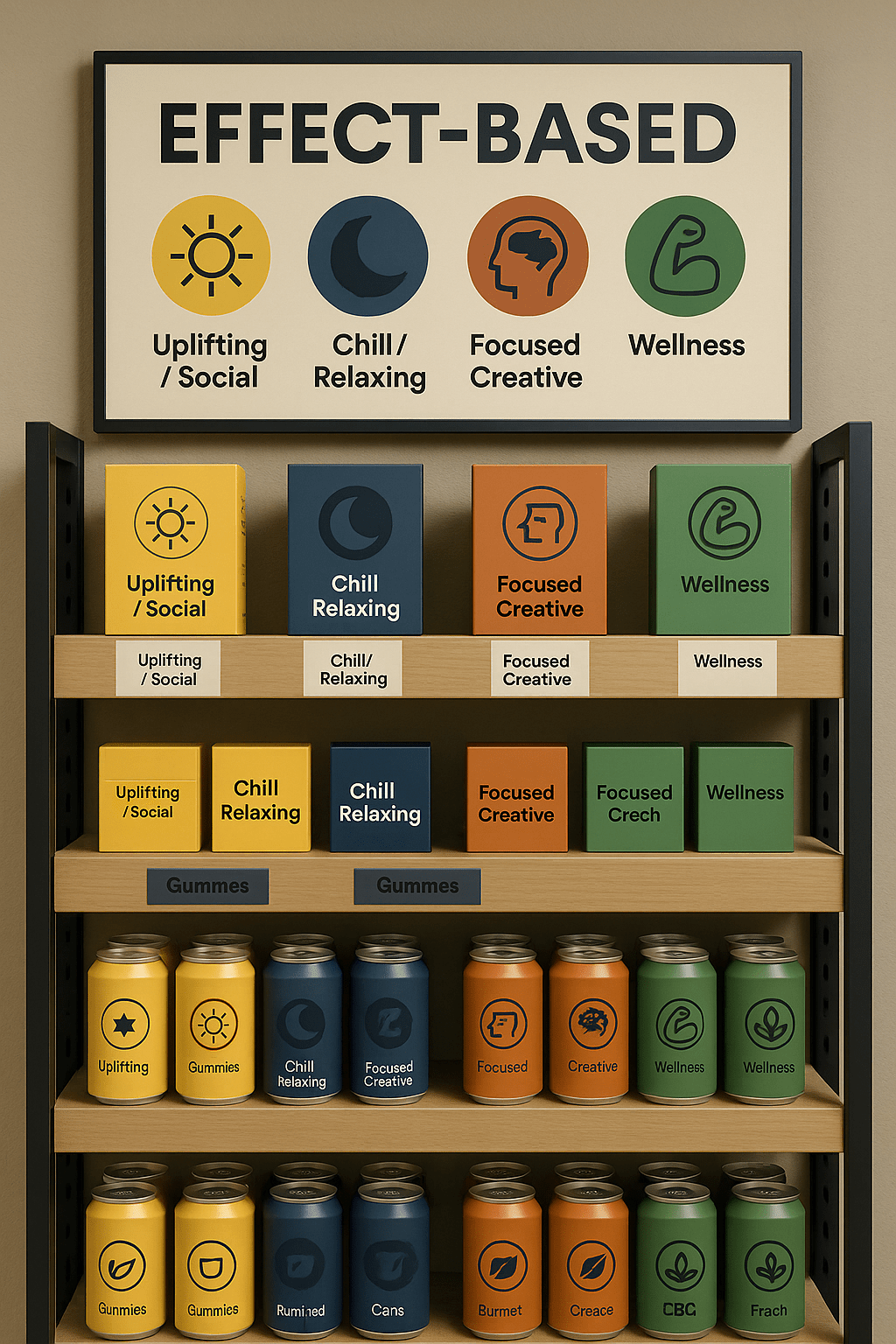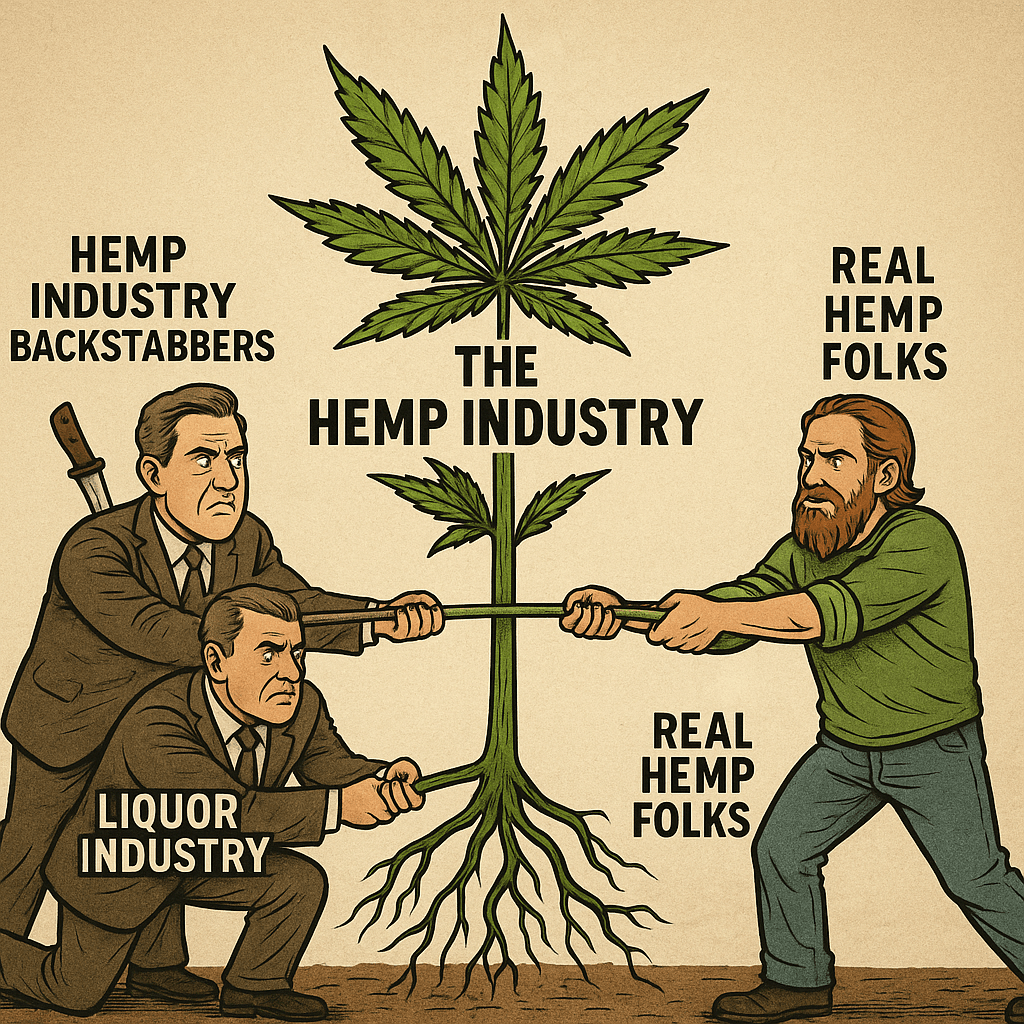The 2025 Florida legislative session will be remembered as a watershed moment for the hemp industry—a season where reason prevailed, small businesses stood strong, and Florida lawmakers, particularly in the House, showed that they had the backs of thousands of hemp entrepreneurs and consumers across the state. Against the looming threat of overregulation and a proposed three-tier system that would have upended the industry, the hemp community emerged victorious.
This is more than a policy win. It’s a testament to the resilience of Florida's hemp businesses and a signal to other states that balance, freedom, and public safety can coexist.
What Was at Stake?
Heading into the 2025 legislative session, Florida’s hemp industry faced a serious threat. A bill introduced in the Senate—SB 1698, championed by Sen. Colleen Burton—proposed sweeping restrictions that many feared would wipe out much of the industry. Key provisions included:
-
A ban on hemp-derived THC beverages.
-
Arbitrary limits on THC per serving and per package for all hemp products.
-
A controversial three-tier distribution system, mimicking the alcohol industry, which would have forced hemp producers to sell through third-party distributors rather than directly to retailers.
-
Limits on the sale of products to adults 21 and older—despite many existing products being safe, lab-tested, and used responsibly by adults.
These proposals were justified under the guise of "protecting children" and "eliminating unregulated products," but the truth was far more complicated. The proposed bill didn’t target bad actors—it targeted everyone. From family-owned hemp farms to boutique brands and wellness stores, the entire industry would have been thrown into chaos.
The House Said ‘No’—And That Changed Everything
Despite SB 1698 clearing the Senate floor, it was the Florida House of Representatives that stood tall and drew the line. House leadership—led by Speaker Paul Renner and members who understood the nuances of the hemp economy—refused to take up the bill.
The House didn't just stall the legislation. They snuffed it out entirely.
No amendments. No watered-down compromise. No last-minute deals. The House simply chose to protect thousands of Floridian jobs, businesses, and an industry that has become a cornerstone of the state’s wellness and alternative health economy.
This sent a clear message: Florida is not in the business of destroying legitimate small industries to solve problems that can be addressed with smarter, targeted regulation.
A Three-Tier System? Not in Florida
One of the most dangerous ideas floated during this session was the idea of a three-tier system—an antiquated regulatory model borrowed from the alcohol world. Under this proposal:
-
Producers could not sell directly to retailers.
-
Retailers would have to purchase only from approved distributors.
-
Distributors would wield enormous market power, able to dictate prices, product access, and terms.
In theory, this system was promoted as a way to “increase oversight.” In reality, it would have killed Florida's vertically integrated hemp brands, increased costs for consumers, and pushed countless products out of the market due to slim margins.
Thankfully, the House didn’t fall for it. Lawmakers understood that the hemp industry is not alcohol, and applying a post-Prohibition model to an emerging cannabinoid sector would be a policy disaster. The House’s decision to reject the three-tier framework is not just a win for 2025—it’s a precedent for future sessions.
How the Hemp Industry Fought Back—and Won
The victory didn’t happen in a vacuum. The hemp industry showed up. Hard.
1. Grassroots Mobilization
From Orlando to Tallahassee, hemp business owners, employees, and customers made their voices heard. They wrote emails. They called their legislators. They showed up at hearings. They told their stories—about how hemp helped them manage pain, anxiety, insomnia, and other health issues; about how they built sustainable businesses in local communities.
2. Clear Communication
Hemp advocates didn’t just say “no.” They presented smart alternatives, including:
-
Age-gating products through ID verification.
-
Mandating QR codes with lab tests on all packaging.
-
Enforcement against non-compliant, unlicensed vendors.
This proactive stance helped sway lawmakers who might have been on the fence.
3. Unity Across the Industry
Unlike in years past, the 2025 session saw a unified hemp front. Farmers, retailers, processors, and even out-of-state brands joined forces to resist regulatory overreach. Organizations like the Florida Healthy Alternatives Association played a key role, as did countless independent business owners.
Why This Matters Beyond Florida
Florida is not just any state—it’s the third largest economy in the U.S. and a key market for hemp-derived products. What happens in Tallahassee often sets a tone for the rest of the country.
Had SB 1698 passed, other states might have followed suit. The “Florida model” could have become the blueprint for overregulation. Instead, the Sunshine State is now the poster child for pragmatic, freedom-first cannabis reform.
What Consumers and Businesses Can Expect Moving Forward
1. Continued Access to Safe, Legal Products
Consumers can breathe easy—products like hemp-derived Delta-9 gummies, beverages, tinctures, and topicals are here to stay. With proper testing and labeling, they can continue to be sold under Florida’s existing regulations.
2. Protection for Small Businesses
Local hemp companies don’t have to worry about being priced out or pushed into a middleman system. This means more innovation, better pricing, and greater market diversity.
3. An Open Door for Better Policy
Now that the dust has settled, Florida has a chance to create smarter, targeted regulation—rules that go after real bad actors (like gas station knock-offs and counterfeit vapes), not compliant businesses. The hemp industry is ready to collaborate.
A Thank You to the House—and a Reminder to Stay Vigilant
This victory wouldn’t have happened without the leadership in the House of Representatives. We applaud lawmakers who listened to their constituents, weighed the evidence, and stood up for liberty, jobs, and reason.
But this is not the end.
Hemp opponents will be back next year. Big Marijuana, Big Pharma, and out-of-state lobbyists aren’t done trying to take market share through legislation. That’s why it’s critical for the industry to:
-
Stay organized.
-
Keep educating the public.
-
Engage with lawmakers year-round.
Conclusion: A Huge Win for Florida—And the Nation
The defeat of SB 1698 marks one of the most significant wins for the hemp industry in the country. Florida refused to bow to panic politics. Instead, it reaffirmed its support for free enterprise, health freedom, and common sense.
Let this be a rallying cry: When the industry stands together and tells its truth, lawmakers listen.
Here’s to Florida—the new national leader in hemp freedom. May other states take note.








































